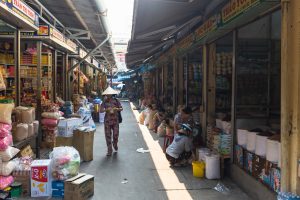More by accident than design, the COVID-19 pandemic has generated enough fear and loathing over the illegal wildlife trade that there has never been a better time for the authorities to shut down markets, bolster protection for endangered species, and protect pubic health.
It’s a sentiment that has been backed by a survey, conducted in March by the World Wildlife Fund (WWF) and strategic consultants GlobeScan, covering five key markets in East Asia where consumption of illegal wildlife markets remains prevalent.
“Questions remain about the exact origins of COVID-19, but the World Health Organization has confirmed it is a zoonotic disease, meaning it jumped from wildlife to humans,” Christy Williams, regional director of WWF’s Asia Pacific program, said.
“China has taken great steps prohibiting the hunting, trade, transport, and eating of wild animals, and Vietnam is working on similar directives. Other Asian governments must follow by closing their high-risk wildlife markets and ending this trade once and for all to save lives and help prevent a repeat of the social and economic disruption we are experiencing around the globe today,” she added.
One thousand people were polled online in Hong Kong, Japan, Myanmar, Thailand, and Vietnam for a total of 5,000 responses. It said respondents were randomly selected and were representative of gender and age of the online population of their respective market.
In almost all markets, the exception being Japan, 90 percent or more people polled were “very likely” or “likely” to support efforts by their governments and health ministries to close all illegal and unregulated markets selling wildlife in their country.
However, in Japan, 59 percent of the respondents answered that there are no such markets in their country. Open wildlife markets for meat are not that common in Japan, which might explain why only 54 percent claimed that they would support such government efforts.
“Respondents predominantly believe that wildlife are the source of the coronavirus pandemic, with 38 percent believing wild animals are the primary source and 63 percent believing they are one of the top two sources,” it found.
Almost 80 percent believed closure of illegal and unregulated wildlife markets – where animals from the wild are sold – would be “very or somewhat effective” in preventing similar pandemic diseases from happening in the future.
It also found that 9 percent of respondents knew someone who had purchased wildlife products in the last 12 months. Live birds topped the list followed by snakes, bats, civet cats, pangolins, and turtles.
In Vietnam, the spread of human disease topped the list of concerns at 46 percent, with pollution (11 percent) and climate change (9 percent) a distant second and third. Similar results were recorded in Thailand and in Hong Kong, where the state of the economy was also major worry.
In Japan the spread of human disease was equal top concern alongside climate change – 26 percent each – followed by terrorism.
In Myanmar, the use of wild animals and plants was the greatest worry, with the spreading of human disease second and climate change third.
Importantly, respondents were split on trust issues, with less than 45 percent trusting their governments to follow through on what they regard as a very important issue. Even fewer respondents trust their fellow citizens in combating the coronavirus outbreak.
Another aspect to this survey is that any opposition to closing wildlife markets was minimal. Only 2 percent said they were not worried at all about such markets.
As people adjust to a post COVID-19 world, political leaders are now well-positioned and would do themselves a favor by ending the illegal, often barbaric, and certainly unhealthy trade in wildlife.
That matters, whether or not illegal wildlife markets prove to be the source of COVID-19
Luke Hunt can be followed on Twitter @lukeanthonyhunt

































